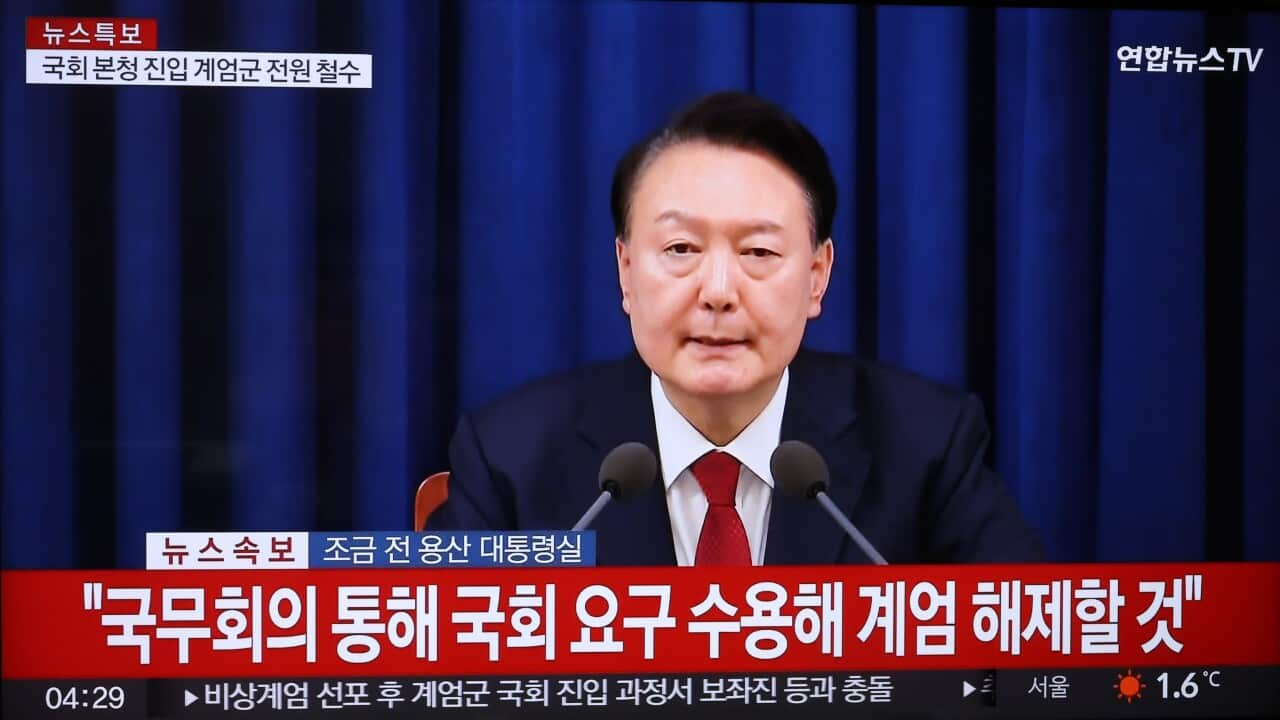South Korea’s parliament has introduced a motion to impeach President Yoon Suk Yeol over a botched attempt to impose martial law, but his party vowed to oppose the move, throwing the process into doubt.
Politicians could vote for the bill as early as Friday. Yoon’s ruling People Power Party said it would oppose it but the party has been divided over the crisis.
The opposition Democratic Party, which has a majority in parliament, needs at least eight ruling party MPs to back the bill in order for it to pass.
“The Yoon Suk Yeol regime’s declaration of emergency martial law caused great confusion and fear among our people,” Democratic Party MP Kim Seung-won told a session of South Korea’s National Assembly held in the early hours of Thursday.
Fighting for his political future, Yoon accepted the resignation of defence minister Kim Yong-hyun on Thursday and nominated his ambassador to Saudi Arabia, Choi Byung-hyuk, as a replacement, Yoon’s office said.
A senior military official and filings to impeach Yoon by opposition members said Kim recommended Yoon declare martial law late on Tuesday, a move that sparked outrage in the streets and concern among its international allies.
Yoon’s declaration of martial law sought to ban political activity and censor the media in South Korea, which is Asia’s fourth-largest economy and a key US ally.
None of the 108 ruling party lawmakers were present for the introduction of the impeachment motion. The motion paves the way for a vote to be held in the following 24 to 72 hours.
The impeachment follows a night of chaos after Yoon declared martial law and armed troops attempted to force their way into the National Assembly building in Seoul, only to stand back when parliamentary aides sprayed them with fire extinguishers.
“The people and the aides who protected parliament protected us with their bodies. The people won, and it’s now time for us to protect the people,” the Democratic Party’s Kim said.
“We need to immediately suspend the authority of President Yoon. He has committed an indelible, historic crime against the people, whose anxiety needs to be soothed so that they can return to their daily lives”.
US secretary of state Antony Blinken told Reuters on Wednesday the United States had not been made aware in advance of Yoon’s declaration, adding that he anticipated speaking to his South Korean counterpart in the coming days.
Opposition parties need a two-thirds majority to pass the impeachment bill. If it passes, South Korea’s constitutional court will then decide whether to uphold the motion — a process that could take up to 180 days.
If the embattled president resigned or was removed from office, a new election would be held within 60 days.
Hours after martial law was declared, South Korea’s parliament unanimously passed a motion for it to be lifted. Source: AAP / Jeon Heon-Kyun/EPA
Martial law chaos
Yoon told the nation in a television speech late on Tuesday that martial law was needed to defend the country from pro-North Korean anti-state forces, and protect the free constitutional order, although he cited no specific threats.
Within hours, South Korea’s parliament, with 190 of its 300 members present, unanimously passed a motion for martial law to be lifted, with 18 members of Yoon’s party present.
The president then rescinded the declaration of martial law, around six hours after its proclamation.
Yoon had been embraced by leaders in the West as a partner in the US-led effort to unify democracies against growing authoritarianism in China, Russia and elsewhere.
But he caused unease among South Koreans by branding his critics as “communist totalitarian and anti-state forces”. In November, he denied wrongdoing in response to influence-peddling allegations against him and his wife and he has taken a hard line against labour unions.
Yoon, a career prosecutor, squeezed out a victory in the tightest presidential election in South Korean history in 2022, riding a wave of discontent over economic policy, scandals and gender wars.
But his support ratings have been at around 20 per cent for months and the opposition captured nearly two-thirds of seats in parliament in an April election.




